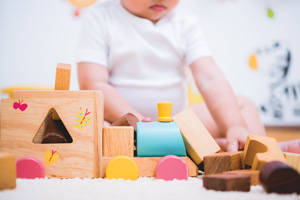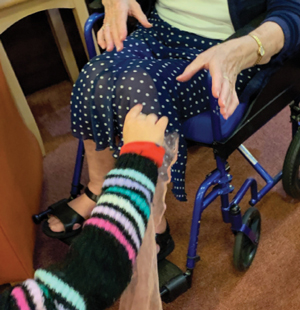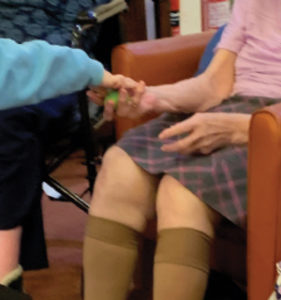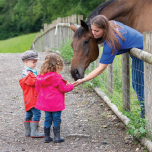
Here Rachael House, Senior Associate Solicitor in Family Law at Mackrell Turner Garrett Solicitors in Woking answers questions to explain the different options so you can work out what’s best for your own relationship.
Can couples of the opposite sex enter into a civil partnership?
Yes. Since the end of 2019, couples of the opposite sex have been able to enter into a civil partnership to cement their relationship in law. This is something that was previously only allowed for same sex couples.
Why not just get married?
People have their own personal reasons for not wanting to get married but they may still want to have the same legal rights afforded to them as married couples. Allowing opposite sex couples to enter into a civil partnership enables them to benefit from the same legal rights as though they were married. This applies to money matters such as tax benefits, pensions and inheritance.
I am happy living with my partner, why bother with either?
Bear in mind that there is no such thing as a ‘common law’ husband or wife. This means that just because you have lived together for a number of years, you do not have the same legal rights as married couples or those in a civil partnership. This can create financial hardship in the event of death or separation if careful planning is not taken at the outset or during the relationship. There are important matters to consider to protect your legal rights for example, if you own your own home or are going to invest unequal amounts into a property. With legal advice, a co-habitation agreement can be prepared setting out how money will be treated in the event of the relationship ending but it can also include provision about the day-to-day running of the household during the relationship. However, as the law currently stands, you will not have the same automatic benefits as married couples or those in a civil partnership.
What do I need to consider before getting married or entering into a civil partnership?
Whether you are getting married or entering into a civil partnership, it is sensible to consider entering into a pre-nuptial agreement, particularly if this is a second marriage or partnership for you – as you may have assets from a previous relationship you wish to protect should this current relationship break down.
Can I convert my civil partnership into a marriage in the future?
Currently only same sex couples can convert their civil partnership into a marriage. Conversion for opposite sex civil partnerships is not yet available, but it is likely to become law in the future.
What if my marriage or civil partnership breaks down?
You must have been separated for a year or more before commencing divorce or (in the case of a civil partnership) dissolution proceedings. Upon the ending of a civil partnership, you are entitled to the same financial provisions as those available in a divorce. The provisions deal with selling or transferring property, payment of a lump sum of money from one party to the other, ongoing payments to support one party to help them live day-to-day, and entitlement to receive a share of the other party’s pension. These may sound like simple matters but the practicality of applying them to the assets is often complicated, and so legal advice is beneficial. Taking early legal advice can often avoid costly court proceedings.
What if I do not want to go to court?
There are different routes to achieve financial settlement without attending court. Many couples go through mediation (legal aid is still available in some circumstances to cover the cost). Another option is the collaborative route where parties meet in the same room with their respective legal teams and pledge not to go to court. Arbitration can be entered into where couples require a court-like decision without actually going to court. It is also possible to arrange private court-like meetings to obtain the expert view of a person acting as a judge. The ‘judgement’ is then used to guide the parties towards reaching agreement swiftly. Your legal advisor can discuss which route is most appropriate for you.
Rachael House is a specialist family solicitor at Mackrell Turner Garrett, an established firm of experienced Solicitors based in Woking. www.mtgsurrey.co.uk




 As settings, we should place the children’s emotional development, resilience and intelligence at the forefront of everything we do, because how can we expect children to learn literacy, maths and problem solving skills when they aren’t emotionally ready to learn? As practitioners we need to support the emotional wellbeing of the children we care for, ensuring that they are aware of their emotions, what they mean and how to manage them. Then children can develop their understanding of the emotional needs of others and how we can be mindful and supportive of each other in order to develop friendships and relationships.
As settings, we should place the children’s emotional development, resilience and intelligence at the forefront of everything we do, because how can we expect children to learn literacy, maths and problem solving skills when they aren’t emotionally ready to learn? As practitioners we need to support the emotional wellbeing of the children we care for, ensuring that they are aware of their emotions, what they mean and how to manage them. Then children can develop their understanding of the emotional needs of others and how we can be mindful and supportive of each other in order to develop friendships and relationships.
 There is nothing more relaxing than spending the evening lying in a hot bubble bath, with a face and hair mask on, freshly painted nails and a glass of wine in your hand. If you don’t want to go the whole hog, a simple pamper set will be a great addition to any household, especially ones that include hand cream as most of us will be suffering with dry hands right now.
There is nothing more relaxing than spending the evening lying in a hot bubble bath, with a face and hair mask on, freshly painted nails and a glass of wine in your hand. If you don’t want to go the whole hog, a simple pamper set will be a great addition to any household, especially ones that include hand cream as most of us will be suffering with dry hands right now.

 Through events like Brighton Festival, young people can explore, discover and participate in the arts. For 30 years the Children’s Parade has officially marked the start of Brighton Festival, with over 5,000 participants, including 3,473 school children, stepping into show stopping costumes they have designed and made themselves. Around 10,000 people come along to see the parade and be part of the largest annual children’s event in the UK. The parade is a unique event produced by community arts organisation, Same Sky, which offers thousands of young people the chance to come together in creations they’ve designed around a central theme, giving them a sense of belonging. In 2020, the Children’s Parade theme is Nature’s Marvels, offering a platform for participants to think more about the world and environment around them.
Through events like Brighton Festival, young people can explore, discover and participate in the arts. For 30 years the Children’s Parade has officially marked the start of Brighton Festival, with over 5,000 participants, including 3,473 school children, stepping into show stopping costumes they have designed and made themselves. Around 10,000 people come along to see the parade and be part of the largest annual children’s event in the UK. The parade is a unique event produced by community arts organisation, Same Sky, which offers thousands of young people the chance to come together in creations they’ve designed around a central theme, giving them a sense of belonging. In 2020, the Children’s Parade theme is Nature’s Marvels, offering a platform for participants to think more about the world and environment around them.
 If it’s not possible to escape the colder months here in the UK and jet off to sunnier climes this year, then we might all just need to be a bit more creative in order to make sure we can still enjoy the great outdoors.
If it’s not possible to escape the colder months here in the UK and jet off to sunnier climes this year, then we might all just need to be a bit more creative in order to make sure we can still enjoy the great outdoors. Leave the picnic at home
Leave the picnic at home









